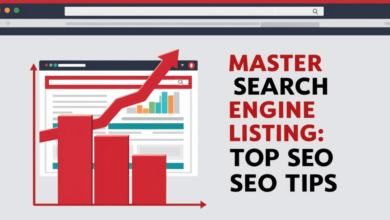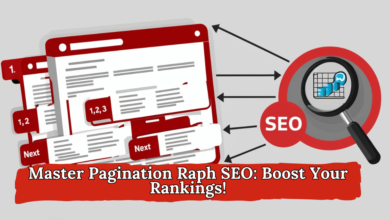In the
fast-paced digital landscape where businesses strive to stay ahead, the debate
over the value of search engine optimization (SEO) often comes up. Some people
argue that SEO is an unnecessary expense, questioning its effectiveness in
bringing tangible results. However, in this comprehensive exploration, we will
dispel the fact and shed light on if this is SEO a waste of
money.
Understanding the essence of SEO
At its
core, SEO is not just about ranking high on search engine results pages
(SERPs). It is a strategic approach to increase online visibility, drive
organic traffic, and ultimately boost business growth. By optimizing various
elements such as website content, keywords and backlinks, SEO aims to improve a
site’s relevance and authority in the eyes of search engines like Google.
ROI of SEO: Beyond Ranking
While some
may argue that SEO is an expensive investment with uncertain returns, the
reality tells a different story. Contrary to popular belief, the benefits of
SEO go beyond better rankings. A well-implemented SEO strategy can lead to
increased website traffic, higher conversion rates, and ultimately increased
revenue.
Drive targeted traffic
One of the
primary benefits of SEO is its ability to attract highly targeted traffic.
Unlike traditional advertising methods that cast a wide net, SEO allows
businesses to reach users who are actively searching for products or services
related to their field. By optimizing for relevant keywords and creating
quality content, businesses can connect with their target audience at the right
time – when they are ready to make a purchase or seek information.
Building Credibility and Trust
Reliability
is paramount in today’s competitive digital landscape. Consumers trust websites
more that appear at the top of search results, considering them authoritative
and trustworthy. Through SEO efforts like content optimization, link building,
and online reputation management, businesses can establish themselves as
industry leaders, earning the trust of both users and search engines.
Long Term Stability
Unlike paid
advertising campaigns that produce short-term results, the benefits of SEO are
long-lasting. Although it may take time to see significant improvements, the
foundation built through SEO – including quality content, reputable backlinks,
and optimized website structure – serves as a lasting asset for the business.
Over time, this investment pays off in the form of consistent organic traffic
and improved brand visibility.
Addressing Common Misconceptions
Despite its
proven effectiveness, SEO continues to face skepticism from some quarters. A
common misconception is that SEO is a one-time effort that doesn’t require
ongoing maintenance. However, the reality is that SEO is an evolving process
that demands constant adaptation and adaptation to algorithm updates and
changes in user behavior.
Another
myth associated with SEO is its perceived complexity and exclusivity to large
enterprises with huge budgets. In fact, SEO strategies can be tailored to suit
businesses of all sizes and budgets. From local businesses targeting a specific
geographic area to e-commerce stores competing on a global scale, there are SEO
strategies suitable for every need and budget.
SEO do’s and don’ts
|
Do’s |
Don’ts |
|
Conduct |
Keyword stuffing: Avoid overloading your |
|
Create high-quality, informative |
Neglecting mobile optimization: Ignoring |
|
Optimize meta tags, including title |
Duplicate content: Avoid copying content |
|
Build a diverse backlink profile from |
Buying backlinks: Avoid purchasing backlinks |
|
Regularly monitor your website’s |
Ignoring analytics: Don’t overlook the |
These are
some essential SEO practices to follow (the do’s) and common pitfalls to avoid
(the don’ts) to help improve your website’s search engine visibility and
overall performance.
SEO Implementation Steps:
Certainly! Here are stepwise SEO
implementation steps:
1. Keyword
Research
2. On-Page
Optimization
3. Technical
SEO
4. Content
Creation and Optimization
5. Off-Page
Optimization
6. Local
SEO (If Applicable)
7. Monitoring
and Analysis
8. Continuous
Improvement
By
following these stepwise SEO implementation steps, you can establish a solid
foundation for improving your website’s search engine visibility, attracting
organic traffic, and achieving your business goals.
Conclusion: Investing in Development
In
conclusion, the notion that is SEO a waste of money is a misconception that
ignores its undeniable benefits for businesses. By driving targeted traffic,
building credibility, and ensuring long-term sustainability, SEO proves its
worth as a valuable investment in business growth. Instead of viewing SEO as an
expense, businesses should recognize it as a strategic asset that delivers
significant returns over time. So, the next time someone questions the value of
SEO, remember: debunking the myth is as simple as understanding its true
potential.
Conquer the SERPs: Unveiling the Best SEO Tricks for Your New Business in 2024
FAQ’S
Also Read: Demystifying Monetization in Blogging: Turning Your Passion into Profit
.png)
.png)



